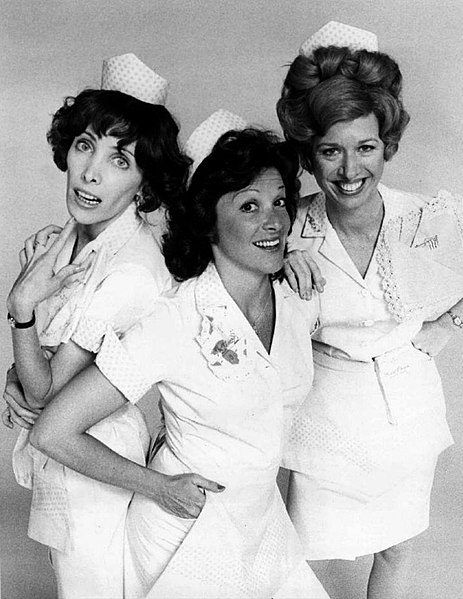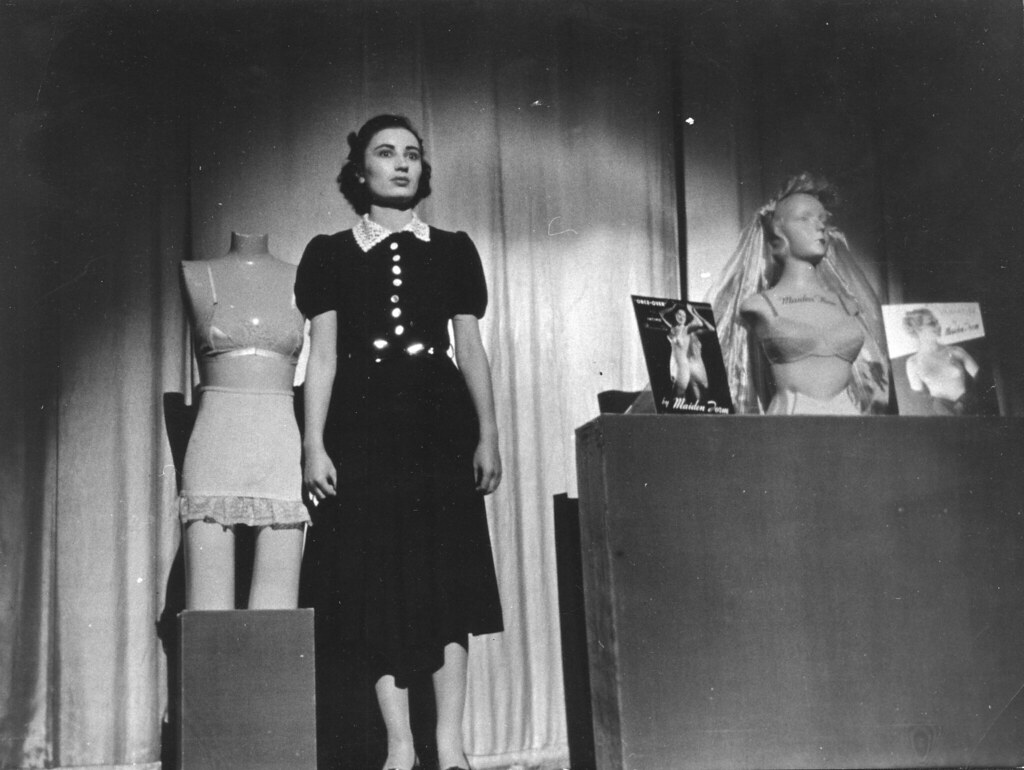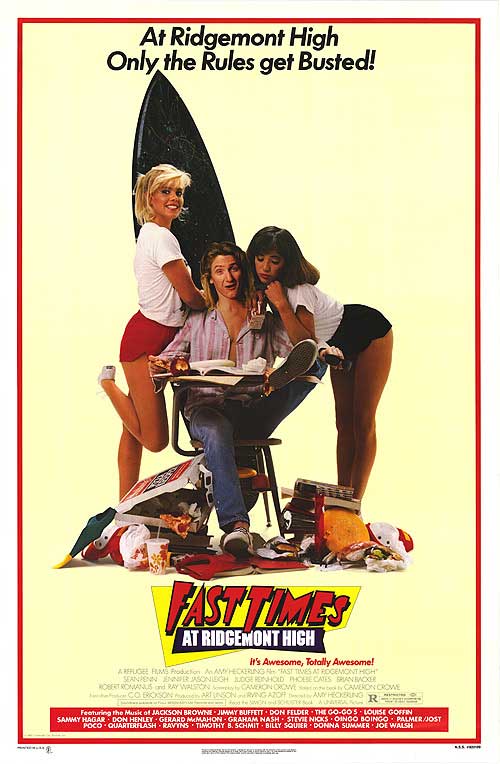
The entertainment world mourns the passing of Polly Holliday, the Tony Award-nominated screen and stage actor who became a household name for her unforgettable portrayal of the gum-chewing, beehive-wearing waitress Flo aboard the long-running CBS sitcom “Alice.” Holliday died Tuesday at her home in New York at the age of 88, her theatrical agent, Dennis Aspland, confirmed.
Holliday was widely recognized for turning the catchphrase “Kiss my grits!” into a national retort, a testament to the indelible mark she left on popular culture. Yet, her impressive career spanned far beyond the diner counter, encompassing decades of significant work on Broadway, in feature films, and numerous television appearances.
Her passing marks a poignant moment, as she was the last surviving member of the principal cast of “Alice,” following the death of Linda Lavin, who played the title character, last year. This article takes an in-depth look at the remarkable life and career of Polly Holliday, celebrating her contributions to the arts and remembering the versatile talent who captivated audiences for generations.

1. **The Iconic Role of Flo in “Alice”**Polly Holliday’s most celebrated role was undoubtedly Florence Jean Castleberry, affectionately known as Flo, in the CBS sitcom “Alice.” From 1976 to 1985, viewers tuned in to see Flo, a flirtatious redhead with waves and twists carefully teased and hair-sprayed in place, working at the fictional roadside Mel’s Diner in Phoenix. Her character was instantly recognizable by her signature gum-chewing and a vibrant beehive wig, which she often wore.
Flo was depicted as a brash yet amiable Southern diner waitress with a distinctive attitude. She was portrayed as shamelessly man-crazy, having been married three times, and too vain to wear eyeglasses. Her confidence was a defining trait, as she famously told her boss, Vic Tayback, “I’m attractive, I’m a good talker, I’m a good dancer, and the list goes on and on.”
Holliday’s portrayal of Flo resonated deeply with audiences, drawing on her own Southern heritage. She identified with the character, telling The Sarasota Herald-Tribune in 2003, “She was a Southern woman you see in a lot of places. Not well educated, but very sharp, with a sense of humor and a resolve not to let life get her down.” The sitcom itself was loosely based on Martin Scorsese’s 1974 film, “Alice Doesn’t Live Here Anymore,” adapting the diner setting and premise for television.
Read more about: Barbara Jakobson: A Luminary’s Enduring Influence on the New York Art World at 92

2. **The Enduring Catchphrase: “Kiss My Grits!”**No discussion of Polly Holliday’s career is complete without mentioning the iconic catchphrase that became synonymous with her character: “Kiss my grits!” This seemingly simple retort transformed into a national sensation, frequently uttered by her character, Flo, in moments of indignation or sass. The phrase perfectly encapsulated Flo’s fiery, no-nonsense personality and became an integral part of the show’s appeal.
Holliday’s delivery of the line was a masterclass in comedic timing. Viewers could tell when Flo was perturbed; she would pause momentarily, address the offender in the sweetest, most dulcet tones, and then, deadpan, suggest, “Kiss my grits.” This unique blend of Southern charm and directness made the phrase memorable and beloved.
Despite its widespread popularity, Holliday was quick to distance herself from the idea that the phrase was an authentic regional saying. She consistently told interviewers that the line was “pure Hollywood” and not something genuinely heard in the South. In a 2003 interview, she expressed her initial confusion, stating, “When the writers gave it to me, I said, ‘What is this supposed to mean? Why am I saying that?’” When fans asked her to repeat it, she would often simply smile and say, “Oh, I’m sure you could do it better.” The phrase itself was a toned-down version of the line used by Diane Ladd, who played Flo in Scorsese’s film, which was deemed too bawdy for prime-time television.

3. **The “Flo” Spin-off Series**Polly Holliday’s immense popularity as Flo led to a rare television distinction: her own spin-off series. In 1980, the network capitalized on her star power by giving her a short-lived comedy titled “Flo.” This development underscored just how impactful her portrayal of Florence Jean Castleberry had become to the viewing public.
The spin-off saw Flo leave Mel’s Diner in Phoenix. Her character was initially set to take a hostess job at a fancy restaurant in Houston. However, in a whimsical turn characteristic of Flo’s impulsiveness, she instead bought a run-down roadhouse in her Texas hometown, Cowtown, on her way to Houston. The series followed her adventures as the owner of this new establishment.
Despite the enthusiasm surrounding its launch, “Flo” lasted for 29 episodes during the 1980-81 season, equivalent to approximately two seasons. Holliday never returned to “Alice” as Flo, except in a flashback episode, with Diane Ladd stepping in as a new waitress, Belle Dupree. Alan Shayne, the casting director for “Alice” and later president of Warner Bros. Television, reflected on the spin-off’s challenges. He noted, “The public kind of wanted her there saying, ‘Kiss my grits’ in the diner, and she became really a different character when she had her own show. She wanted to be different.”
Read more about: 14 Classic Rides That Boomers Loved But Millennials and Gen Z Just Can’t Stand: Unpacking Why These Iconic Cars Fail to Appeal Now

4. **Major Awards and Nominations: Golden Globes and Emmys**Polly Holliday’s exceptional talent and engaging performance as Flo did not go unnoticed by the industry. She received significant recognition for her work, garnering multiple prestigious awards and nominations throughout her career, particularly during her time on “Alice” and “Flo.”
For her role as the spirited waitress, Holliday earned four Golden Globe nominations. She won the Golden Globe Award for Best Supporting Actress in a Television Series in both 1979 and 1980, matching the two Golden Globes won by her co-star, Linda Lavin. These back-to-back wins highlighted her critical acclaim and solidified her status as a standout performer in comedic television.
In addition to her Golden Globe success, Holliday also received considerable attention from the Emmy Awards. She garnered four Emmy Award nominations during her tenure as Flo. Three of these nominations were for her work on “Alice,” while one was specifically for her role in the spin-off series “Flo.” These accolades underscore the profound impact she had on the landscape of 1970s and 1980s television comedy.

5. **Early Life, Education, and Formative Years in Theater**Polly Dean Holliday’s journey into acting began far from the bright lights of Hollywood, rooted in her Southern upbringing. She was born on July 2, 1937, in Jasper, Alabama, a small town northwest of Birmingham. She later grew up in Childersburg, Alabama, where her parents, Ernest Sullivan Holliday, a truck driver, and Velma (Cain) Holliday, a housewife, raised her. Even in her youth, her artistic inclinations were evident, as she was voted most talented in her senior class at Childersburg High School.
Her initial academic pursuits steered her towards music. She majored in piano at Alabama College for Women, which is now the University of Montevallo, graduating in 1959. Following her graduation, she worked for a period as a music teacher. She later continued her studies in music education at Florida State University, but it was during this time that her path began to shift towards the dramatic arts.
While at Florida State, Holliday started spending time with drama students, an experience that ignited a passion for acting. This led her to join the Asolo Repertory Theater in Sarasota in 1962, a pivotal moment in her career. She dedicated nearly a decade to the Asolo, honing her craft in a wide range of productions by literary giants such as Shakespeare, Molière, Chekhov, Shaw, and Dickens. One of her notable roles during this formative period was Madame Defarge in a musical adaptation of “A Tale of Two Cities.”
Read more about: Joseph McNeil’s Enduring Legacy: How a Spark in Greensboro Ignited the Civil Rights Movement

6. **Broadway Debut and Initial Stage Work**After cultivating her skills for many years in regional theater, Polly Holliday made the decisive move to New York City in the 1970s to pursue a career on the stage. Her talent quickly earned her roles, marking her presence in the vibrant New York theater scene. In 1972, she appeared with Ruby Dee in “Wedding Band,” a powerful drama by Alice Childress about an interracial romance, presented at the Public Theater Off Broadway.
This Off-Broadway engagement proved significant, as “Wedding Band” later became the vehicle for her screen debut when the play was adapted for an ABC television movie in 1974. The New York Times critic John J. O’Connor praised the film as “powerful, moving and occasionally very funny,” giving Holliday an early taste of screen acting.
Holliday made her official Broadway debut in 1974, starring in Murray Schisgal’s comedy “All Over Town.” This production was notable for being directed by none other than Dustin Hoffman, a connection that would prove fruitful for her budding film career. In the play, she portrayed a highly seducible Southern matron, showcasing her range and comedic timing on one of the most prestigious stages in the world. Her enduring love for the stage was evident in her statement to The Tampa Bay Times in 1992: “An actor is unfortunate if he doesn’t get to spend a lot of time onstage. When you’re onstage, you get to practice every night.”
Read more about: Joan Plowright, an Era-Defining Actress of Dazzling Versatility, Dies at 95: A Retrospective on a Seven-Decade Career

7. **First Forays into Film: “All the President’s Men”**Even as her stage career began to flourish, Polly Holliday’s talent was quickly recognized by the film industry. Her association with Dustin Hoffman, who had directed her Broadway debut in “All Over Town,” played a crucial role in her early foray into the world of cinema. Hoffman, impressed by her abilities, later sought her guidance when preparing for his role in the 1982 film “Tootsie,” where his female character-within-a-character, Dorothy Michaels, shared similarities with Holliday’s Flo Castleberry, including a silky Southern accent and a fiery temper.
This connection led to Holliday landing a role in the critically acclaimed 1976 film “All the President’s Men.” In the historical thriller, she portrayed a protective secretary to Ned Beatty’s character, a Florida investigator. Her character was instrumental in the narrative, almost foiling Dustin Hoffman’s attempts to interview her boss about the Watergate scandal, demonstrating her ability to hold her own alongside established stars.
This film role marked a significant milestone, as it came in the same year that “Alice” debuted on CBS, propelling her into national prominence. “All the President’s Men” served as one of her earliest screen credits, signaling a diverse career trajectory that would encompass both the intimacy of theater and the broad reach of film and television. It set the stage for her versatility across genres and mediums, cementing her presence in Hollywood beyond her iconic sitcom role.

8. **Iconic Film Roles Beyond “All the President’s Men”**Polly Holliday’s cinematic presence extended far beyond her early political thriller debut, showcasing a remarkable versatility that allowed her to inhabit roles across diverse genres, from dark comedies to family-friendly fare. Her ability to transform into vastly different characters cemented her as a memorable figure in feature films throughout her career, proving there was much more to her than just Flo’s signature sass.
One of her most indelible big-screen portrayals came in the 1984 horror-comedy “Gremlins,” where she played the wealthy and notoriously meanspirited Mrs. Deagle. This character was a stark contrast to the amiable Flo, allowing Holliday to demonstrate a chilling, yet comically exaggerated, villainy. Her performance as Kingston Falls’s own wicked witch, as described by critics, culminated in one of the film’s most memorable scenes, where her character meets a swift, albeit fantastical, end via a tampered stair-lift chair, ejected through an upstairs window into the snow.
Holliday also graced several other notable films, bringing her unique touch to a variety of supporting roles. She appeared as Gloria in the beloved 1993 comedy “Mrs. Doubtfire,” portraying the slightly annoying but ultimately endearing next-door neighbor to Robin Williams and Sally Field’s characters. Her turn as the stern yet effective camp director Marva Kulp, Sr., in the 1998 remake of “The Parent Trap,” showcased her ability to handle comedic authority, even with the mischievous duo of Lindsay Lohan’s characters.
Her filmography further included a role in John Grisham’s 1995 legal thriller “The Client,” cementing her presence in dramatic narratives. Other credits highlighted her range, such as roles in Paul Mazursky’s “Moon Over Parador” (1988), where she played an excitable wife, and her final film appearance in the 2010 drama “Fair Game,” where she was cast as the concerned mother of the outed C.I.A. operative Valerie Plame. Her earlier work also included “W.W. and the Dixie Dancekings” (1975) and comedic turns in “Mr. Wrong” (1996) and “The Heartbreak Kid” (2007), illustrating a career rich in diverse cinematic contributions.
Read more about: The Best Historical Movies: 22 Films Known for Accuracy

9. **Enduring Presence on Broadway: Tony Nomination and Other Productions**While television audiences adored her as Flo, Polly Holliday’s heart truly belonged to the stage, a dedication she maintained throughout her illustrious career, frequently returning to Broadway. Her profound commitment to live theater was recognized with one of the industry’s highest honors, a Tony Award nomination, underscoring her depth as a dramatic actress.
In 1990, Holliday earned a Tony Award nomination for Best Featured Actress for her powerful performance as Big Mama in a revival of Tennessee Williams’s “Cat on a Hot Tin Roof.” In this challenging role, she portrayed a loud, highly strung Mississippi matriarch, married to Charles Durning’s Big Daddy, a man who harbored deep resentment towards her. Critics, including Frank Rich of The New York Times, lauded her portrayal as a “poignant Big Mama” and “a rending figure within the thunderstorm of the denouement,” highlighting her ability to convey complex emotional layers.
Her Broadway career spanned multiple decades and included other memorable roles in revered productions. In 1986, she co-starred with Jean Stapleton and Abe Vigoda in a revival of “Arsenic and Old Lace,” demonstrating her comedic timing in a classic farce. She returned to the Great White Way in 1994, appearing in a revival of William Inge’s “Picnic,” where she played the heroine’s overly protective mother, another character named Flo. David Richards praised her in The Times for putting “a revelatory spin” on the character, who remembered bitterly being “once the town beauty but wasted every advantage that nature gave her.”
Holliday also had a significant association with playwright John Guare, appearing in several of his comedies Off Broadway and on. In “Marco Polo Sings a Solo” (1998), her character delivered one of the play’s most unique monologues, revealing she used to be a man, which a critic noted, “paid due attention to both effects by the wonderful Polly Holliday.” She also appeared in Guare’s “Chaucer in Rome” (2001) as an artist’s embarrassing, touristy mom from Queens, and in “A Few Stout Individuals” (2002), where she played the “desperately cheerful wife” of Ulysses S. Grant, a performance described as “fluttery and wonderful” by the Associated Press.

10. **Memorable Television Guest Appearances**Beyond her starring roles in “Alice” and “Flo,” Polly Holliday maintained a busy and diverse career in television, making numerous guest appearances that endeared her to new audiences and showcased her range. Her ability to infuse even brief roles with distinctive character made her a sought-after presence across various popular series of the era, illustrating her continued appeal on the small screen.
One of her most notable guest spots was in the beloved sitcom “The Golden Girls” in 1986, where she played Lily, the blind sister to Betty White’s character, Rose Nylund. This role allowed her to display a sensitive and nuanced performance, offering a poignant contrast to her more boisterous comedic characters. She also became a familiar face to viewers of “Home Improvement,” recurring as Tim Allen’s sassy, albeit slim, mother-in-law across five different seasons between 1993 and 1999, further solidifying her comedic prowess in a recurring capacity.
Holliday’s television resume also included appearances in various dramatic and comedic series, demonstrating her versatility across genres. She joined the cast of CBS’s short-lived “Private Benjamin” in 1983, stepping in to replace Eileen Brennan. Earlier in her career, in 1974, she had a six-episode stint on the soap opera “Search for Tomorrow” as a “prison inmate leader,” providing an early glimpse of her ability to create memorable characters even in limited screen time.
Her filmography also lists guest roles in other significant series of the 1980s and 1990s, including Steven Spielberg’s anthology series “Amazing Stories” (1986), the crime drama “The Equalizer” (1988), and the critically acclaimed “Homicide: Life on the Street” (1996), which marked one of her final television credits. Additionally, she played a supportive mother and roommate to JoBeth Williams’s character in “The Client” television series (1995-96), showcasing her enduring presence in the evolving landscape of episodic television.
Read more about: Bob Uecker, The Comic Bard of Baseball, Dies at 90: A Chronicle of a Life Larger Than the Game
11. **Versatility and Range Across Genres**Polly Holliday’s career trajectory is a testament to her profound versatility, seamlessly navigating the demanding worlds of stage, film, and television, and effortlessly transitioning between comedic and dramatic roles. While she became nationally recognized for her comedic timing as Flo, her body of work consistently demonstrated a much broader artistic range, challenging any attempts at typecasting.
Her personal reflections on her craft reveal an actor who appreciated the nuances of different performance styles. As she told The Tampa Bay Times in 1992, “I used to think I preferred drama, but I kept getting cast in comedies, and realized I was sort of good at it. Now I think I would like to do comedy more. It’s hard to do, but in a way it doesn’t take as much of an emotional toll.” This insight speaks to her adaptability and her pragmatic approach to a career that continually pulled her toward humor.
Despite her inclination towards drama, Holliday excelled in comedy, delivering performances that were both broadly entertaining and subtly layered. The boisterous, gum-chewing Flo of “Alice” was a masterclass in comedic characterization, yet her stage roles, such as the deeply emotional Big Mama in “Cat on a Hot Tin Roof,” showcased her capacity for profound dramatic expression, earning her a Tony nomination.
Her ability to inhabit such disparate characters – from the meanspirited Mrs. Deagle in “Gremlins” to the sweet, blind Lily in “The Golden Girls” – highlights a rare talent. She brought authenticity and depth to each role, regardless of its genre or scope. This consistent command of her craft allowed her to leave an indelible mark on audiences across a spectrum of entertainment, proving her to be a truly adaptable and gifted performer.
Read more about: Olivia Hussey: A Life Defined by Star-Crossed Romance, Acclaim, and Lingering Controversy (1951-2024)

12. **Polly Holliday’s Personal Reflections on Flo and Her Southern Roots**Polly Holliday’s portrayal of Florence Jean Castleberry, or Flo, resonated deeply with audiences, in large part because Holliday herself drew upon her own Southern heritage to infuse the character with authenticity. Her insights into Flo’s personality and background provided a depth that transcended a simple sitcom role, making Flo a relatable and enduring figure in popular culture.
She openly identified with Flo, offering a candid perspective on the character’s appeal. As she told The Sarasota Herald-Tribune in 2003, “She was a Southern woman you see in a lot of places. Not well educated, but very sharp, with a sense of humor and a resolve not to let life get her down.” This personal understanding allowed Holliday to portray Flo not as a caricature, but as a spirited and resilient woman, embodying a certain Southern charm and grit that viewers instantly connected with.
However, despite the widespread popularity of Flo’s signature line, “Kiss my grits!”, Holliday was always quick to clarify its origins. She consistently told interviewers that the phrase was “pure Hollywood” and not a genuine regional saying from the South. Her initial confusion upon receiving the line from writers highlights her commitment to genuine portrayal, questioning why her character would say something unfamiliar to her Southern sensibilities.
Her humility extended to her interactions with fans who often asked her to repeat the iconic phrase. Instead of indulging their requests, Holliday would typically offer a polite smile and suggest, “Oh, I’m sure you could do it better.” This endearing response further solidified her down-to-earth personality, demonstrating that while she embraced the fame Flo brought, she remained grounded and focused on the broader tapestry of her acting career.

13. **Continued Theatrical Work and Regional Theater Contributions**Even as her television and film career blossomed, Polly Holliday never strayed far from her first love: the stage. Her commitment to theater was unwavering, extending beyond Broadway to prominent regional theaters across the United States. This dedication provided her with continuous opportunities to hone her craft and explore a diverse repertoire of dramatic works, affirming her belief in the actor’s need for consistent stage practice.
Holliday delivered a memorable performance as Amanda Wingfield in Tennessee Williams’s iconic play “The Glass Menagerie” at the Guthrie Theater in Minneapolis in 1988. This demanding role showcased her ability to embody complex and emotionally rich characters, further solidifying her reputation as a formidable dramatic actress. Her work in regional theater allowed her to delve into roles that might not have been available to her in the commercial pressures of Broadway, offering a space for artistic exploration.
Her theatrical journey also included appearances in other esteemed productions, demonstrating her wide-ranging artistic interests. At the Kimmel Center in Philadelphia in 2002, she was part of Tom Stoppard’s intellectual play “Every Good Boy Deserves Favor,” a testament to her willingness to tackle challenging and unconventional material. She also appeared in Arthur Laurents’s “The Time of the Cuckoo” at Lincoln Center in 2000, further cementing her presence within New York’s prestigious theatrical institutions.
Polly Holliday’s steadfast dedication to the stage was a recurring theme throughout her life, often articulated with deep conviction. As she famously told The Tampa Bay Times in 1992, “An actor is unfortunate if he doesn’t get to spend a lot of time onstage. When you’re onstage, you get to practice every night.” This sentiment underscored her belief in the transformative power of live performance and her lifelong commitment to the art of acting.
Read more about: Betty Bonney, Singer of ‘Joltin’ Joe DiMaggio,’ Dies at 100: A Look Back at Her Enduring Legacy in Big-Band and Television

14. **A Legacy of Laughter and Depth: Polly Holliday’s Enduring Impact**Polly Holliday’s passing at 88 marks the end of an extraordinary era, as she was the last surviving member of the principal cast of the beloved sitcom “Alice.” Her long and multifaceted career, spanning over five decades, left an indelible mark on the entertainment industry, characterized by both iconic comedic performances and profound dramatic turns across stage, film, and television.
Holliday’s legacy is undoubtedly anchored by her unforgettable portrayal of Flo. Her gum-chewing, beehive-wearing persona and the enduring catchphrase “Kiss my grits!” transcended the sitcom format, becoming a staple of American popular culture. Yet, to define her solely by this role would be to overlook the immense breadth of her talent and her dedication to the craft of acting.
From her Tony-nominated performance as the poignant Big Mama in “Cat on a Hot Tin Roof” to her terrifying turn as Mrs. Deagle in “Gremlins,” Holliday consistently demonstrated her exceptional range. She brought authenticity and nuance to every character, whether a sassy diner waitress, an excitable wife, or a protective secretary, proving her capability to command both laughter and profound emotion from audiences.
Polly Holliday’s impact lies in her ability to connect with people through her art. She was a performer who understood her characters deeply, often drawing from her own Southern roots to bring them to life with honesty and humor. Her enduring spirit, versatility, and the joy she shared through her performances ensure that her contributions to stage and screen will be remembered and cherished for generations to come.




